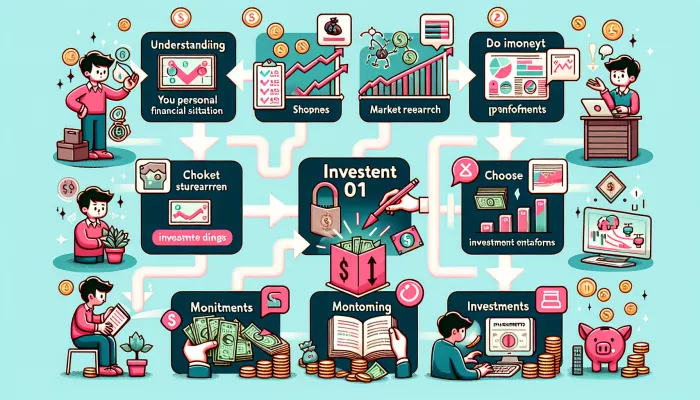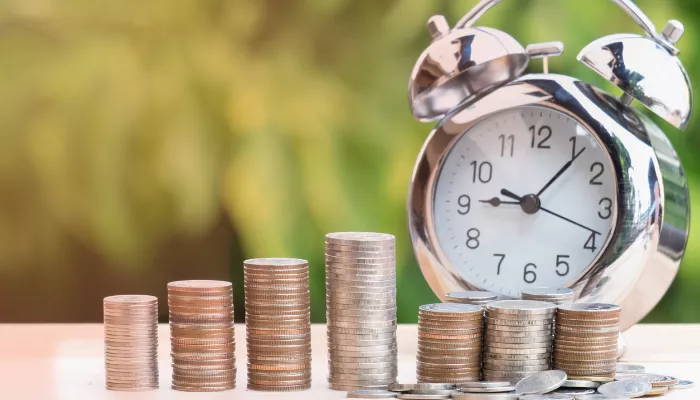
An emergency fund is essential for your financial security, acting as a safety net that can help you and your family face unforeseen events without resorting to debt.
These unforeseen situations can include unplanned medical expenses, urgent home repairs, or even the loss of a job.
Having an emergency fund means you don't have to worry about how you will handle these situations.
Plus, it gives you peace of mind because you know you have a backup financial.
This is especially important in times of economic uncertainty, where unforeseen events can be more frequent and severe.

The ideal amount for your emergency fund varies depending on your financial situation and personal needs. A general rule is have the equivalent of three to six months of fixed expenses.
This includes rent or mortgage, bills, food, and other recurring expenses.
Building an emergency fund may seem like a daunting task, but it doesn't have to be. Starting small is better than not starting at all. You can:
Remember if, the important thing is to start. Even if you can only save a small amount initially, that's a step in the right direction.
Creating an emergency fund is a crucial step on the path to financial stability. Start planning and building yours today.
Remember: the sooner you start, the more prepared you will be to face the uncertainties of the future without sacrificing your financial health or resorting to debt.
Assessment of your current financial situation
To begin with, it is essential to understand your financial situation. Consider your essential monthly expenses such as housing, food, healthcare, transportation and education.
Add these expenses together to have a base of how much you need at least per month.
Definition of the number of months covered by the fund
Decide how many months you would like your emergency fund to cover in case of loss of income.
Experts recommend between 3 and 6 months of expenses covered, but this may vary depending on the stability of your income and your fixed expenses.
Calculating the amount of the emergency fund
Based on your essential monthly expenses, multiply this amount by the number of months you have decided to cover (e.g. expenses of R$3,000 X 6 months = R$18,000).
This is the ideal amount you should have in your emergency fund.
Once you've calculated the amount you need for your emergency fund, consider implementing strategies to reach it:
Remember, building an emergency fund is a gradual and adaptable process as your needs and financial possibilities change.
Useful links:
Building an emergency fund can seem like a daunting task, especially when you're dealing with a tight budget.
However, with some cunning strategies and changes to your financial habits, it is possible to build this reserve without feeling a major impact on your day-to-day life.
Below are some practical tips for fueling your emergency fund effectively.
Automation is your ally in building an emergency fund.
Configure a automatic transfer Putting a small portion of your salary directly into an emergency fund account can simplify the savings process.
This way, you save without having to think about it, eliminating the temptation to spend money that should be saved.
Analyze your Consumption habits and identify areas where you can cut expenses.
Small changes, such as reducing going out to dinner, canceling subscriptions that you don't use often, or even changing phone or internet plans for more affordable options.
Above all, they can free up a significant amount of money that can be directed to your fund.
They exist finance apps that can help you track your expenses and save money.
Apps like GuiaBolso, Organize, It is My Savings offer resources so you can track where your money is going and identify opportunities to save more.
Don't limit yourself to just cutting expenses. Look for ways to increase your income.
This could include selling items you no longer use, taking on freelance work, or even investing in courses that could increase your chances of a promotion or career change that increases your salary.
To define clear and achievable goals Short-term work can keep you motivated.
For example, try to save a small amount such as R$100 to R$500 per month depending on your ability.
Primarily, seeing your emergency fund gradually grow can encourage you to keep saving.
The perfect budget is not fixed; he needs to be reassessed and adjusted regularly.
This helps you understand if you're on track with your savings and allows you to adjust as needed to reach your goals faster.
By following these practical strategies, feeding your emergency fund will become a more manageable task, even on a tight budget.
Remember that consistency is the key to financial success.
Creating an emergency fund is a crucial step on the path to financial stability. Start planning and building yours today.
Remember: the sooner you start, the more prepared you will be to face the uncertainties of the future without sacrificing your financial health or resorting to debt.